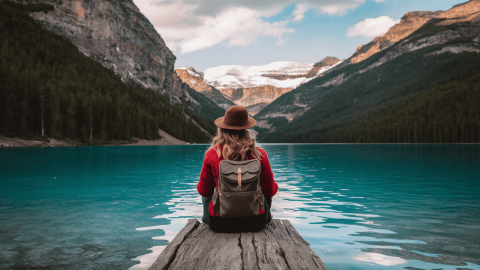How Digital Platforms Are Enhancing Travel Experiences
The travel industry has undergone a sea change thanks to the proliferation of advanced technologies in this sector. From planning a trip to bookings, travel, and post-trip reflections, technology has taken over each of the touch points in our travel experience.
The significant shift in the tourism sector has mainly been caused by the digital revolution. From how we book our flights to how we explore destinations, digitisation has redefined every aspect of the travel experience. Mobile technology and digital innovations like artificial intelligence (AI), augmented reality (AR), and big data are creating a range of possibilities in the travel landscape like never before.
In this article, we dive deep into several of the touchpoints in our travel experience that have been redefined with innovations in technology.
Mobile apps and websites
Several mobile applications provide the service for handling bookings, reservations of hotels, and real-time changes and updates—advanced travel websites for streamlined planning and purchasing of tourism packages. AI-powered chatbots offer immediate redressal of grievances through customer support and even provide recommendations.
Platforms like Airbnb have become quite popular for travelers looking for budget-friendly and economical accommodations. With just a few taps on their phones, one can find homely sayings. While they are comfortably lodged in their hotels or AirBnB properties, travellers can have fun through gaming apps. For example, if you are looking for a fun and exciting way to unwind, “click here to enjoy the Aviator slot online.”
Google Maps, on the other hand, has become inextricable from travelling. Instead of asking a passerby for directions, Google Maps has become a convenient way to reach the desired destination.
Social media
Social media has played a crucial role in inspiring users to travel. Most potential travellers do due diligence on social media platforms like Instagram or YouTube before planning a trip. This gives them a better idea of their itinerary.
Marketing and personalization
Booking companies provide personalised deals to customers' preferences, expectations, locations, or behavioral patterns. Targeted campaigns are held to woo potential customers through loyalty points and exclusive rewards for devoted travelers. They can instantly collect customer feedback, reviews, and ratings.
By analyzing patterns in booking data, airlines and hotels predict peak travel times, optimize pricing, and manage resources accordingly. This approach boosts their profitability and, at the same time, improves customer satisfaction.
Travel operations and transportation
Automatic and self-service check-ins have eliminated queues and reduced wait times. Paperless travelling is a reality at airports with most of the required documents like boarding pass and ID cards now available on apps.
Going a step ahead, luggage, too, has become smart, as it is now equipped with GPS tracking, digital locks, and weight sensors. Travelers can monitor and secure their belongings with peace of mind.
Meanwhile, the days when cabs had to be booked in advance are gone. Now, there are several app-based cab services which avail taxis to travellers in just a few minutes making commuting easy in a new place like never before.
Artificial Intelligence
AI and machine learning help travel companies offer personalized recommendations that make trip planning efficient. AI-based platforms like Google Trips and TripIt use data from past travels, personal preferences, and even local events to recommend activities and destinations tailored for the individual.
Virtual Reality and Augmented Reality
Virtual reality (VR) and augmented reality (AR) allow travelers to preview their destinations from the comfort of their homes. Travel agencies and tourism boards now offer VR tours, letting potential visitors virtually see popular landmarks, hotels, and activities. Travelers can visualize their destinations in a 360-degree view, which can help them make informed decisions about their travel plans.
AR apps such as Google Lens provide real-time information and translations to enhance on-site experiences. Travelers can scan monuments, restaurants, and other attractions to view detailed historical data, ratings, and even translations of local language.
Blockchain for Enhanced Security
Blockchain technology ensures security, and transparent transactions while travelling. It allows travelers to make payments and complete bookings without worrying about fraud or hidden charges.
Conclusion
Technology has revolutionized travel by providing convenience, personalization, and safety during the journey. These technologies will continue to evolve and make travel even more exciting in the future. Smarter innovations will enhance safety and security, enriching an individual's journey. Technology has only added to the value of tourists' experiences.
